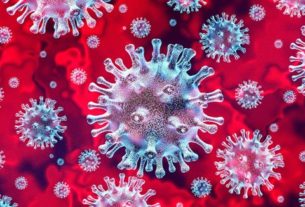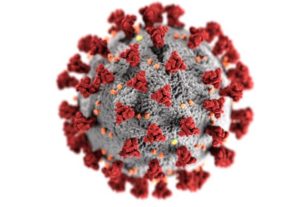From Our Bureau
10TH AUGUST 2020
The Corona Virus (COVID-19) pandemic situation remained grim globally, with the confirmed cases across the world soaring to 1,97,18,030 and the death toll rising to 7,28,013 in the 216 affected countries and territories, according to the latest update from the World Health Organization (WHO).
Globally, American region continued to be the worst-hit with 1,05,90,929 confirmed cases and 3,88,673 deaths. Europe came next with 35,82,911 confirmed cases and 2,16,693 deaths. South-East Asia region’s tally stood at 26,32,773 confirmed cases and 53,677 deaths.
Eastern Mediterranean region reported 16,44,359 confirmed cases and 43,433 deaths. African region registered 8,95,696 confirmed cases and 16,713 deaths. Western Pacific region recorded 3,70,621 confirmed cases and 8,811 deaths. WHO Risk Assessment at global level remained very high.
Over the past weeks, WHO has been adding functionality to its COVID-19 global dashboard, to display all of the latest data that have been published in the daily situation report; these data are now fully available on the dashboard. Important narrative updates are being merged into the WHO COVID-19 “Rolling updates” pages.
Starting next Monday, 17 August,
the daily situation report will be replaced by a “COVID-19 Weekly
Epidemiological Update” which will focus on analysis and interpretation of the evolving
epidemiologic situation. Operational updates will continue to be shared through
the “Weekly Operational Update on COVID-19”.
On 9th August, the world
celebrated International Day of the World’s Indigenous Peoples, an annual event
to raise awareness of the needs and rights of the world’s indigenous
populations. COVID-19 and indigenous peoples in the Americas were featured in
Situation Report 182. A recent UN News article discusses how the COVID-19
pandemic has made indigenous Hawaiians reflect on their heritage.
A flight carrying protective masks, ventilators and other essential medical supplies for the COVID-19 response, landed in Papua New Guinea last Thursday, marking the start of a humanitarian air service for the Pacific region.
Global epidemiological overview of COVID-19: week ending 9 August
Global overview
Overall, there have been over 19.7 million confirmed COVID-19 cases, including more than 720 000 deaths, reported to WHO through the week ending 9 August. Over the past seven days, over 1.8 million new cases of COVID-19 have been reported, a slight decrease of 2 percent, compared to the previous week, while the number of deaths increased by 2 percent in the past seven days with over 41,000 new deaths reported during this time. This works out to an average of 254,502 cases and 5,858 deaths per day.
The biggest regional change in the number of new cases in the past seven days is represented by the marked decrease (23 percent) in the WHO Region of Africa, although deaths continued to rise. While the WHO Region of the Americas still remains the hardest-hit, contributing over half of all newly confirmed cases reported (54 percent) and deaths (63 percent) reported during the past week, the largest percentage increase in new cases and deaths was seen in the Western Pacific region (31 percent and 27 percent respectively).
Among all the countries, territories, and areas reporting confirmed cases, the United States of America, Brazil, and India remain the top three most affected countries in the past seven days.
Across the globe, countries have implemented various control efforts, including mandated mask wearing, local movement restrictions, and physical distancing measures to control the increases and clusters of new cases that followed the initial easing of public health and social measures initially implemented earlier in the year.
At media briefing today, WHO Director-General Dr Tedros Adhanom Ghebreyesus said: “This week we’ll reach 20 million registered cases of COVID-19 and 750,000 deaths. Behind these statistics is a great deal of pain and suffering. Every life lost matters. I know many of you are grieving and that this is a difficult moment for the world.”
“But I want to be clear, there are green shoots of hope and no matter where a country, a region, a city or a town is – it’s never too late to turn the outbreak around. There are two essential elements to addressing the pandemic effectively: Leaders must step up to take action and citizens need to embrace new measures,” he explained.
“Some countries in the Mekong Region, New Zealand, Rwanda, and many island states across the Caribbean and the Pacific were able to suppress the virus early. New Zealand is seen as a global exemplar and over the weekend Prime Minister Jacinda Ardern celebrated 100 days with no community transmission, while stressing the need to remain cautious,” he added.
“Rwanda’s progress is due to a similar combination of strong leadership, universal health coverage, well-supported health workers and clear public health communications. All testing and treatment for COVID-19 is free in Rwanda, so there are no financial barriers to people getting tested. And when people test positive for the virus, they’re isolated and health workers then visit every potential contact and test them also.
“Getting the basics right provides a clear picture of where the virus is and the necessary targeted actions to suppress transmission and save lives. This means that where there are cases, the government can quickly implement targeted measures and focus control efforts where they are needed most.
“Other countries like France, Germany, the Republic of Korea, Spain, Italy, and the UK had major outbreaks of the virus but when they took action, they were able to suppress it.
“Many countries globally are now using all the tools at their disposal to tackle any new spikes. Over the last few days, UK Prime Minister Boris Johnson put areas of northern England under stay at home notifications, as clusters of cases were identified. In France, President Macron introduced compulsory masking in busy outdoor spaces of Paris in response to an increase in cases.
“Strong and precise measures like these, in combination with utilising every tool at our disposal are key to preventing any resurgence in disease and allowing societies to be reopened safely. And even in countries where transmission is intense, it can be brought under control by applying an all of government, all of society response.
“Chains of transmission have been broken by combination of rapid case identification, comprehensive contact tracing, adequate clinical care for patients, physical distancing, mask wearing, regular cleaning of hands and coughing away from others.
“Whether countries or regions have successfully eliminated the virus, suppressed transmission to a low level, or are still in the midst of a major outbreak; now is the time to do it all, invest in the basics of public health and we can save both lives and livelihoods.
“In the countries that have done this successfully, they are using a risk based approach to reopen segments of societies, including schools. And as they do so, they must remain vigilant for potential clusters of the virus. We all want to see schools safely reopened but we also need to ensure that students, staff and faculty are safe. The foundation for this is adequate control of transmission at the community.
“My message is crystal clear: suppress, suppress, suppress the virus. If we suppress the virus effectively, we can safely open up societies. As countries work to suppress COVID-19, we must further accelerate our work to rapidly develop and equitably distribute the additional tools we need to stop this pandemic.
“Just over three months ago we launched the ACT Accelerator as the fastest and most effective way to do this. It is the only end-to-end, global solution that combines public and private sector expertise in research and development, manufacturing, procurement and delivery for the tools needed to address the pandemic’s cause.
“The ACT-Accelerator has already harnessed the international public health ecosystem in a unique way of working, with early proof of its potential. The accelerator supported vaccines are in Phase 2/3 trials. A Global Vaccines Facility is engaging over 160 countries. The first therapy for severe COVID – dexamethasone – is in scale-up. Dozens of other promising therapies are under analysis.
“Over 50 diagnostics are in evaluation, including potentially game-changing rapid antigen tests. And a comprehensive framework for allocating these scarce tools for greatest global impact, is under consultation.
“The coming 3 months present a crucial window of opportunity to scale-up the work of the ACT-Accelerator for global impact. However, to exploit this window we have to fundamentally scale up the way we are financing the ACT-Accelerator and prioritize the use of new tools. There is a vast global gap between our ambition for the ACT-Accelerator and the amount of funds that have been committed.
“While we’re grateful for those that have made contributions, we’re only 10 percent of the way to funding the billions required to realise the promise of the ACT Accelerator. And this is only part of the global investment needed to ensure everyone everywhere can access the tools.
“For the vaccines alone, over $100 billion dollars will be needed. This sounds like lot of money and it is. But it’s small in comparison to the 10 trillion dollars that have already been invested by G20 countries in fiscal stimulus to deal with the consequences of the pandemic so far.
“I would like to close by saying a few words about the explosion in Lebanon that last Tuesday killed over 150 people, injured more than 6,000 and left over 300,000 people homeless. To the people of Beirut, the health workers and emergency workers on the ground: our thoughts are with you and we will continue to support you.
“From our strategic stockpile in Dubai, WHO immediately sent surgical and major trauma supplies. We released funds from the contingency fund for emergencies. And our staff are on the ground are supporting the assessment of the impact on the health sector with Lebanese and other UN partners.
“We are shipping $1.7 million dollars’ worth of PPE items to support COVID-19 and humanitarian supplies that were destroyed by the blast. We are also working closely with national health authorities to enhance trauma care, including through the deployment and coordination of qualified emergency medical teams.
“We’re also mitigating the COVID-19 impact, addressing psychosocial needs and facilitating the rapid restoration of damaged health facilities. We have issued an appeal for $76 million US dollars and ask for your solidarity and support to the Lebanese people,” the WHO Director-General said. (eom)


